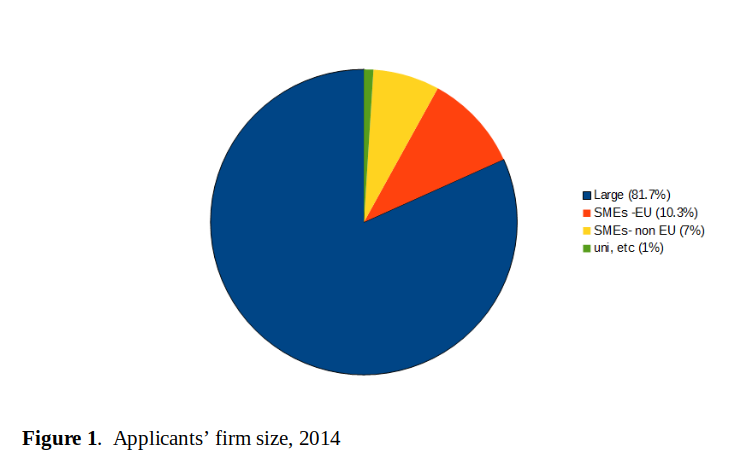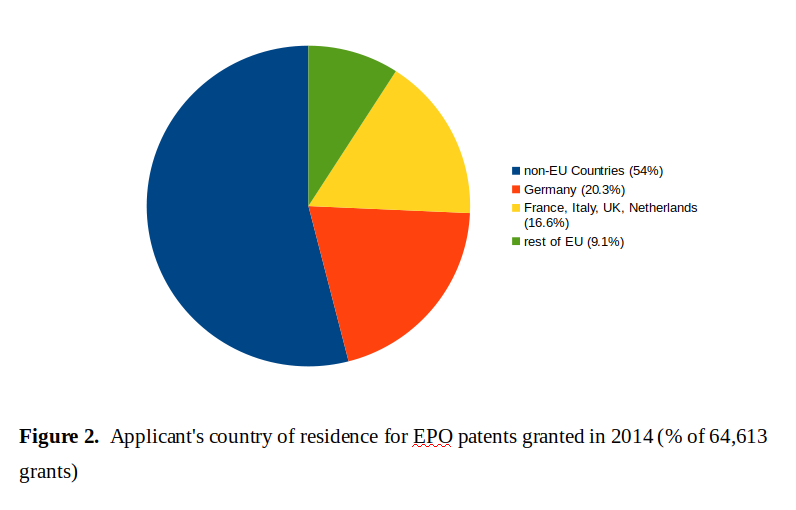


WE were recently invited to participate at some capacity in book-writing activity, having covered this matter for a very long time. See this latest series about how our predictions -- for nearly half a decade -- turned out to be true. No wonder we're cited in some scholarly publications. The references came to our attention earlier this month.
"They don’t typically mean “innovation” when they (mis)use that word… just ask a software developer when he or she found patents helpful to the development process…"We remain dedicated to exposing propaganda, inaccuracies, and sometimes innocent misconception (spread owing to lies that get 'planted' in the media). Some days ago MME Legal Tax Compliance published "Brexit and IP-Rights - What will change?" and then promoted it through Lexology. Here's the part about UPC:
Brexit will not affect existing European patents due to the fact that the European Patent Office is a separate entity to the EU. It is more likely that the Brexit will affect the proposed Unitary Patent and Unified Patent Court providing grant of a single patent offering EU-wide protection, which the UK is currently a member of and has ratified. It currently seems unlikely that the UK will remain a member state once the transition period is over.
There is hardly any economic activity that is not, to some extent, influenced by patented technology. In some sectors, such as health care, environment, energy, security, defence and software, patents are particularly important. The democratic control of intellectual property in national markets is an essential responsibility of the state. Yet, the state is being stripped of democratic control by the EU’s new, pseudo-federal patent system.
The technocratic approach that characterizes institutional debate at EU level is convenient because a more thorough political-economic and social examination would reveal the paradox of federalization in the absence of a federation. As the EU is neither a state nor a federation, the inherently adversarial nature of the international/European patent system has already contributed to an ever-increasing transfer of wealth from less developed to more developed states. Had the EU actually been a federal state, such a transfer might have been offset by the redistribution of wealth to support other federal systems, such as education, social welfare and defence. Such a genuine federal system exists in the US, which – unlike the EU – maintains a reasonably balanced, patent import-export ratio. As a result, there is accumulation of wealth in the US which is subsequently redistributed to the common systems of the state. In Europe, the absence of federation means not only that there is little redistribution of wealth, but also that there is not much wealth to redistribute in that the majority of European patents are taken out by non-EU-based companies. Given the disadvantages under which the international patent system in Europe labours, the EU has pushed its pseudo-federalization by augmenting the key elements of its adversarial nature. First, it gives a unitary/federal effect to the European patent that increases the number of imports of patent monopolies from dozens of thousands to hundreds of thousands. Second, it abolishes national control, which results in a total loss of national sovereignty in circumstances where national control is needed more than ever because of the unprecedented increase in the volume of patent imports. The loss of national control is exacerbated by discriminatory procedures allowing foreign patent litigation in a foreign language. Such absolute surrender of national sovereignty in peacetime is institutionally and historically unprecedented. In this respect, the UPP facilitates the emergence of zombie states where democratic control and national elections play little role in state business and the well-being of the people.
The patent data confirm what is already apparent: European markets have long been dominated – and are increasingly being dominated – by large companies based in a few states, mostly outside the EU and many in Eastern Asia (China, South Korea and Japan). In the minority share of the total number of European patents, one state, Germany, has almost as many patents as all other member states of the EU combined, a situation that will become more dominant when the UK leaves the EU in 2020. The combined share in patenting of 23 member states is just 9%, and patenting is negligible in many. The EPO has been allowed to set itself beyond judicial and legislative oversight. Objective evidence reveals that the position of SMEs is very weak under the EPO regime: their share of annual European patents granted is less than 10% and 17% of patent applications. These statistical results contradict the official justification for the UPP, which focuses on the benefits for SMEs.
The current study presents a manageable methodology for the collection and evaluation of patent data. Additionally, key economic factors that determine patenting capacity have been identified and evaluated. Such a holistic approach enables us to escape the framing of the debate within the terms dictated by the EU. Democratic control and effective oversight of such major economic-political issues requires external research and evaluation. Loss of national sovereignty removes not only national control, but also the contribution of external expert opinion.